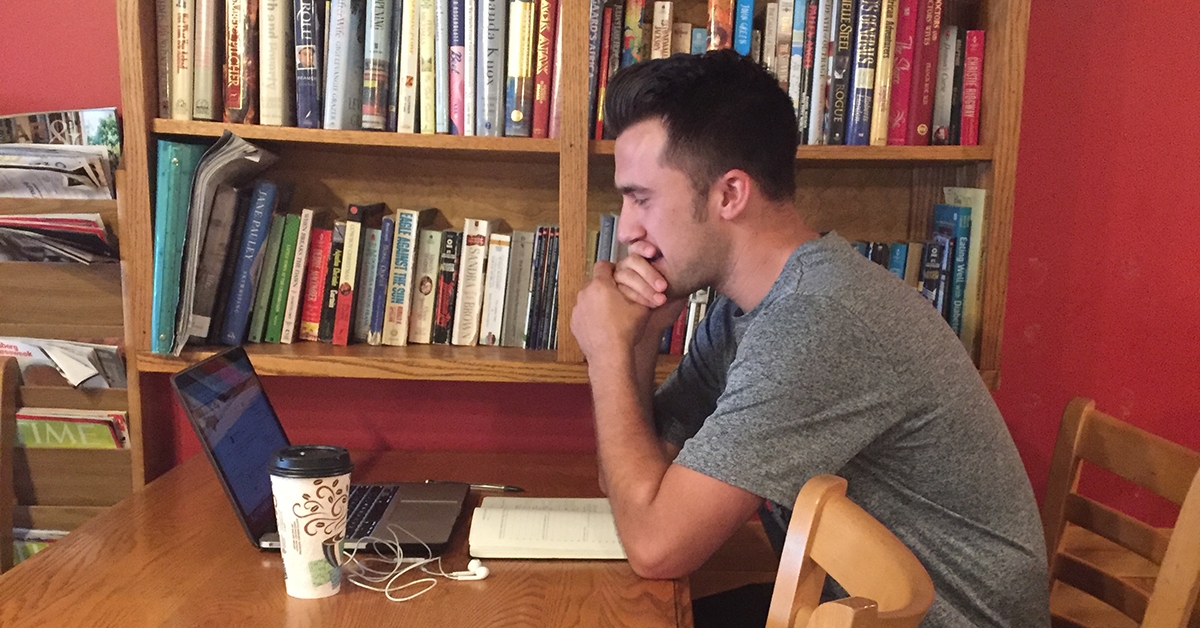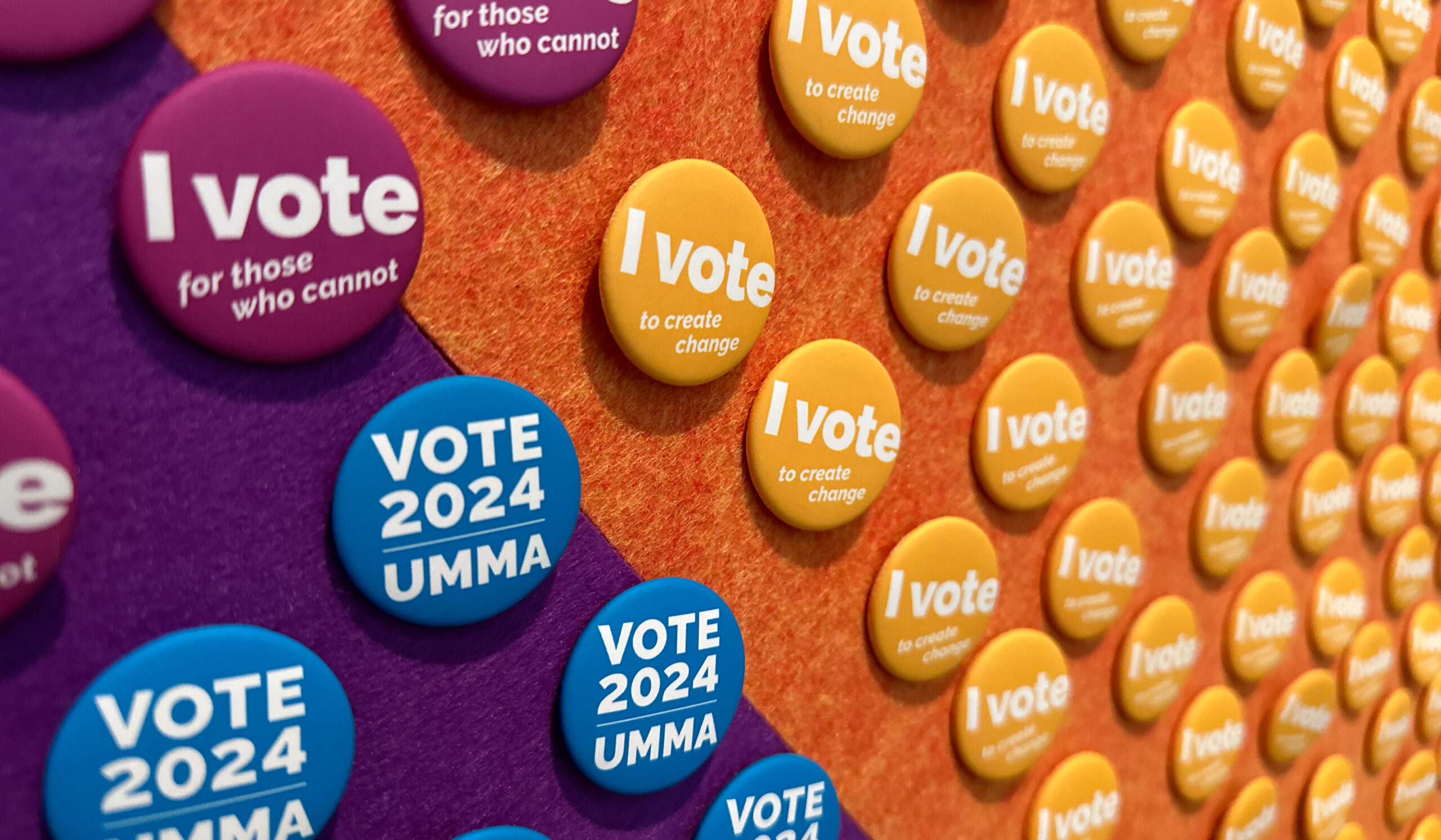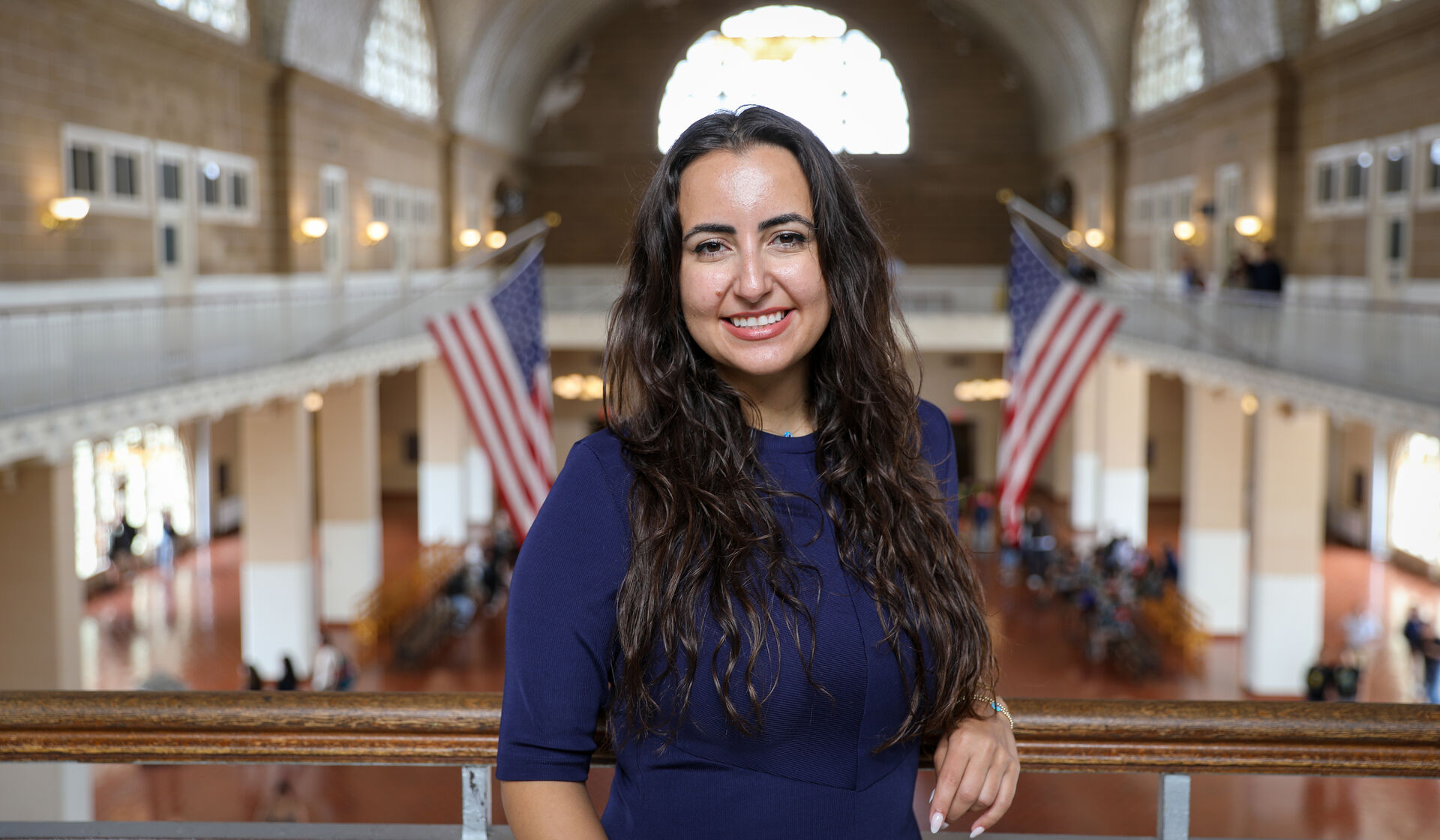In 2016, two computer programming graduates, Michael Copley, ’16 (pictured), and Ish Baid, ’16, MSE’17, launched The Edible Project. Formerly an app, now an application programming interface (API), it categorizes menu items into four popular diet preferences—vegan, gluten-free, vegetarian, and then allergies (broken down by types, such as nuts or dairy). It also gathers the restaurant’s location, and a description, price, and review for each item. Copley, who has an array of food restrictions, sat down with Michigan Alumnus to explain why he thinks people are eating up this information from Ann Arbor to L.A.
What’s the backstory? What inspired you to create a project like this?
The app came from personal experiences. I carry an EpiPen and my throat swells up if I consume dairy. I am also allergic to a handful of tree nuts and can’t have any soy. I have a lot of other random complications, but those are my main allergies. Once I got to college, it became a lot harder for me. Back at home, my mom cooked for me. It was difficult to live in a city, where it’s the social thing to go out and eat. Ish and I started chatting with people and realized there’s a pretty big umbrella of people with dietary restrictions: gluten-free, vegan, vegetarian, and more. Over half of Americans have a dietary restriction of some sort. So we decided to make an app to help.
What were the challenges you faced while developing the app?
It was hard to create an app that people liked. We had a lot of learning to do. It is difficult to make an app that people enjoy using that also looks pretty. We spent around eight months working out how it looked before we felt comfortable with it. Now we have moved on from the app to do something different.
What have you done that is so different with Edible?
We are selling or, rather, licensing our API to food delivery and food discovery apps, like Uber Eats. Edible allows those apps to display dietary and allergy flags. Our company is less focused on the app at this point, and more focused on gathering that data, making sure it is correct, and licensing it out to other companies.
How has your Michigan experience influenced Edible?
I made the first version of our mobile app at an MHacks “hackathon” my second year of college. We developed the very first mobile version in a class taught by Elliot Soloway. He sponsored me and another one of his students, Martina Lugo, ’16, to keep building it as an independent study. I want to give another big shout-out to Matt Gibson from the Center for Entrepreneurship. He gave me a grant to go to San Francisco and attend the Thiel Fellowship Summit. That got me connected to other entrepreneurs and started my interest in building my own company.
What are your goals? How many cities do you want to reach?
We are in Ann Arbor and L.A. but we are expanding our data collection to include more cities: New York, Chicago, and Seattle. Our main goal is to bring on more clients and companies that need this data to show in their apps. It allows them to appeal to a larger market, given the number of people with dietary restrictions…especially in the last couple of years, as that number has grown.
Is this what you imagined yourself doing?
I kind of knew that I was going to run with Edible when I graduated. When I started at U-M, I don’t think this would’ve been my first guess. Then, my second year, the gears were turning. By my third year, I was really preparing to go with it.
What advice would you give to current U-M students, knowing what you know now?
The most useful thing is to surround yourself with people who are doing a similar thing. Chat and befriend people that are interested in the same things as you, or already work in jobs that interest you. Create relationships.
Senior Anna Haritos is an editorial assistant for Michigan Alumnus and the senior social media editor at The Michigan Daily.





